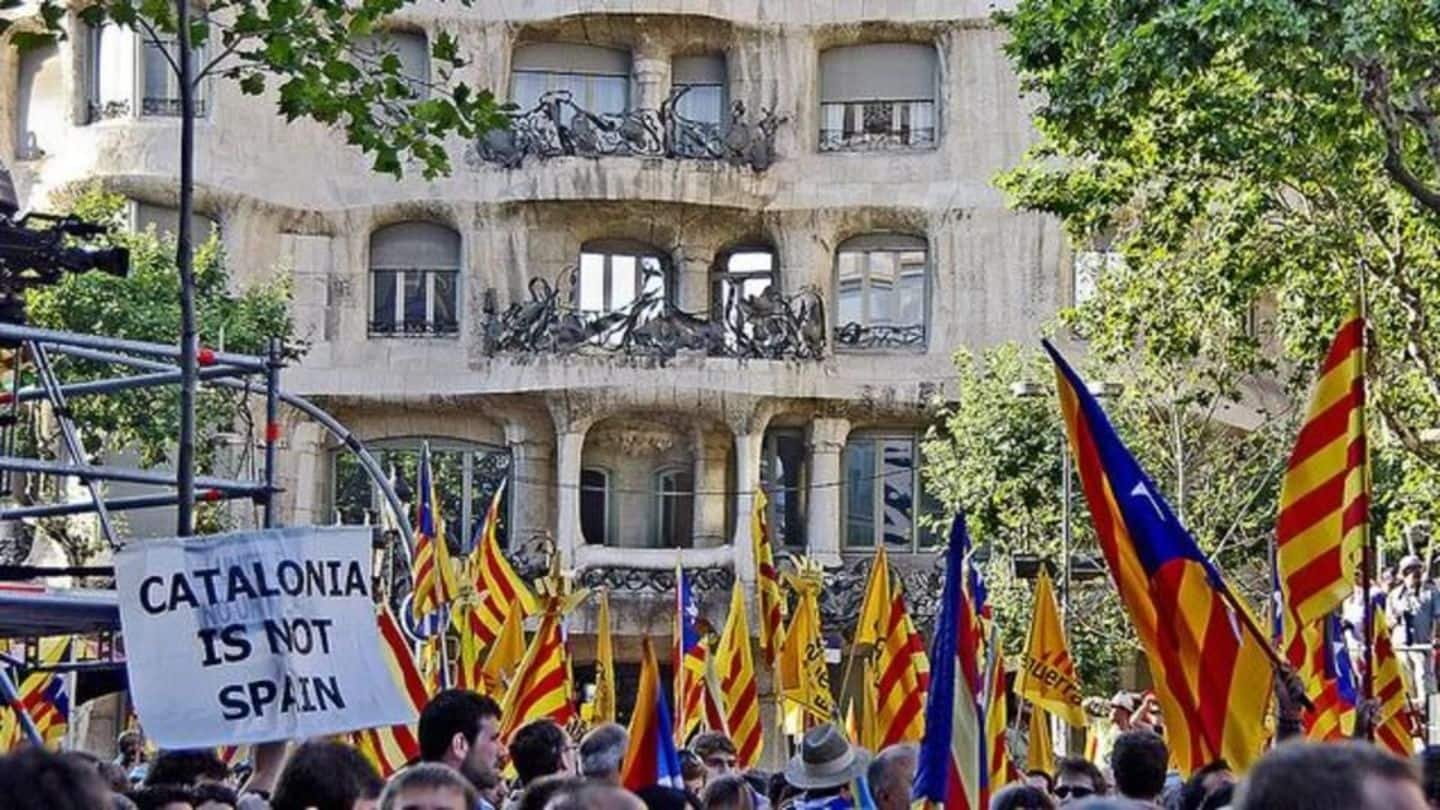
Catalan independence: Madrid moves to suspend the region's autonomy
What's the story
Catalonia declared independence from Spain in a recently held parliamentary session. However, Madrid seems to be tightening its grip on Catalonia and has declared its intent to suspend the region's autonomy this week under Article 155 of the constitution. Raising the stakes on its side, Catalan leaders stated that Spanish "repression" would push them towards implementing the independence declaration. What's really at stake here?
11 Oct 2017
Catalonia declares independence, puts it on hold
On 11 October, the Catalan Parliament signed a declaration of independence in a session eagerly watched by the whole world. Catalan President Carles Puigdemont said that the declaration will not be implemented for several weeks, allowing time for talks with the Spanish government, which has dismissed the independence declaration. Madrid had been stepping up pressure on Catalonia after it recently held a disputed referendum.
Information
Where is Catalonia?
Catalonia is an area located in the north-east of Spain and is considered to be among its richest and most industrialized areas. With its capital in Barcelona, Catalonia has a distinct identity and language from Spain.
Background
Catalan referendum: What has happened so far?
Catalan leaders held a referendum in defiance of Madrid to ascertain whether its population backed independence from Spain. 90% of 2.2 million voters, who amounted to 40% of Catalonia's population backed independence. Madrid deployed its police forces to forcibly prevent voting. The crackdown left 900 people injured and significantly angered Catalans. Numerous anti-Spain protests erupted afterward, with entities including FC Barcelona backing Catalan independence.
Spain's stance
Catalan independence: What is Spain's position?
Madrid has slammed Catalan leaders for being "confrontational" and rejected their offer for dialogue. PM Mariano Rajoy has now provided an ultimatum to Puigdemont to convey to Madrid a definitive answer on independence by local time 10:00. "The Spanish government will continue with the procedures outlined in Article 155 of the Constitution to restore legality in Catalonia's self-government," the government said.
Article 155
Article 155: What does it entail?
Article 155 empowers the government to take remedial measures when a "self-governing community" contravenes obligations under the constitution in a way that is "seriously prejudicial to Spain's general interest." Under this provision, Madrid can essentially water down Catalonia's autonomy, transferring powers from the latter to the former. The purported measures could range from conducting snap elections to taking over control of policing and finances.
Conclusion
What is at stake?
Madrid can only implement measures planned under Article 155 after the Senate approves of it. However, both Spanish and Catalan leaders have to tread carefully as sentiments are running high and thousands are expected to take to the streets to vent out their frustration. For Puigdemont, Article 155 would render the road to Catalan independence difficult as Madrid would likely take over his powers.